 Your new post is loading...
 Your new post is loading...
"Why should you help a competitor? Why should you contribute to the public good if free riders reap the benefits of your generosity? Cooperation in a competitive world is a conundrum. Natural selection opposes the evolution of cooperation unless specific mechanisms are at work. Five such mechanisms have been proposed: direct reciprocity, indirect reciprocity, spatial selection, multilevel selection, and kin selection. Here we discuss empirical evidence from laboratory experiments and field studies of human interactions for each mechanism. We also consider cooperation in one-shot, anonymous interactions for which no mechanisms are apparent. We argue that this behavior reflects the overgeneralization of cooperative strategies learned in the context of direct and indirect reciprocity: we show that automatic, intuitive responses favor cooperative strategies that reciprocate."
"Social contracts are written into our biology. As is the justice they need. The arc of our evolution has long bent towards the justice of “laws” fittest for team survival. We bred ourselves, by artificial selection, to internalize and feel strongly about social rules. Christopher Boehm in Moral Originsconcludes, after intensive analysis of 50 representative hunter-gatherer cultures, that our ancestors likely experienced a “radical political change,” evolving from a hierarchic “apelike ‘might is right’…social order,” to become more egalitarian. About 250,000 years ago, theirsurvival became a team sport because chasing big-game toward teammates was much more productive than solo hunting. But only if profit-sharing was sustainable. Even with fit teammates hunting needs luck (e.g. 4% success today). Then, as now, the logic of social insurance solved team problems by sharing profits and risks. Productivity gains in interdependent teams radically changed our evolution. Cooperators thrived. As did teams with the best adapted sharing rules, provided they were well enforced."
"State-of-the-art DNA sequencing is providing ever more detailed insights into the genomes of humans, extant apes, and even extinct hominins (1–3), offering unprecedented opportunities to uncover the molecular variants that make us human. A common assumption is that the emergence of behaviorally modern humans after 200,000 years ago required—and followed—a specific biological change triggered by one or more genetic mutations. For example, Klein has argued that the dawn of human culture stemmed from a single genetic change that “fostered the uniquely modern ability to adapt to a remarkable range of natural and social circumstance” (4). But are evolutionary changes in our genome a cause or a consequence of cultural innovation?"
"Taken in addition to the preceding surveys of primate bonding and attachment theory, in sum it is argued that there is much evidence for substantial continuity between humans and closely related species in many of the basic conditions and processes mediating the expression of social bonding, and none are contingent upon genetic relatedness per se. These mediating mechanisms include developmental association and proximity, food sharing, co-sleeping arrangements, commonality of care-givers, and familiarity between individuals. Indeed the anthropological concept of ‘nurture kinship’ is invoked to remind us of an existing conceptual formulation of the extent to which kinship ties can be created via processes of sharing and care-giving, independently of blood ties."
"So it’s not so much that collaborative consumption is dead, it’s more that it risks dying as it gets absorbed by the “Borg” and its mindless minions of capitalism. Nothing new or special here, of course. As a recent Atlantic Cities feature concluded, collaborative consumption is just more efficient, which isn’t all bad. In a recent Economist cover story, Tim O’Reilly says this loss of revolutionary potential is inevitable. He’s wrong, though. It’s only inevitable if a company takes VC money. It’s really just a decision. This is where the real sharing economy comes in. It is more than just VC-backed Internet startups. It’s a tectonic shift in how the economy works. As society changes from a top-down factory model of organization to a peer-to-peer network model, how we produce, consume, and interact will be radically transformed. At its simplest, the sharing economy is the decentralization of economic power brought on by new technology, new and revived business models, and massive social change. It’s made up of thousands of innovations, some for profit, some nonprofit, and some that thrive in the commons. If we can avert our collective gaze from our latest technology gadgets for a second, we might be able to see the real sharing economy, the one driven by values and tested by time. Below are some of the most important and overlooked parts of it:"
"Two years after the Arab Spring, questions still remain as to how much social media actually helped fuel and drive the uprisings that arose in Tunisia and swept across the region. But regardless of what happened during those Twitter-fueled revolutions, what's happened afterward? That's what social media analytics firm Crimson Hexagon and Sanitas International wanted to find out when it decided to analyze tweets coming out of Egypt, Libya and even Syria, where there still is a war going on. The results of its 3-month study, which will be discussed in a panel at SXSW on Sunday, underscore the changes these countries are undergoing."
"The New Economy Card Deck is intended to allow everyone, regardless of prior expertise or familiarity, to play with the kinds of thinking that is going on between transformational economists who are looking closely and critically at our existing economic paradigm and exploring both small tweaks and wholesale alternatives. Each card in the deck describes an economic concept in simple terms. The cards make economic design elements tangible and accessible in order to facilitate games and "what if" questions -- such as "what if the world actually worked like this...how would it change my professional practice, my life, my world?" The intention is for people to begin to see the economy as a design problem we can solve rather than an unquestioned paradigm that we simply have to accept and attempt to survive within -- and then move beyond that into thinking how we can, in our lives, begin to shift into the new patterns we now see as possible and preferable. This is a collaborative process, with plenty of room for dialogue, development of new cards and alternative starter decks for specific audiences, along with deeper data and resources, and exploration of real world efforts to implement some aspect of this new economy."
"If a cooperative is the best business model for your business, why not share that benefit with others? Imagine an entire economy of principled enterprises that serve member needs and advance democratic participation. Cooperatives can grow the cooperative economy in several ways. One way is by growing themselves: increasing their membership, sales, locations, services, products and jobs. And co-ops grow the co-op economy when they do business with each other. Investment in cooperative loan, grant and equity funds also boosts cooperative economies. Another method is for co-op businesses to seed the development of new cooperatives. For an existing co-op, a new co-op business in the local economy means new peers and more people understanding and committed to co-op principles and values; it can also mean an improved bottom line and more member benefits. Several co-op development strategies emerge from a review of what co-ops around the country are doing to expand the co-op economy. These correspond well to research by David Ellerman on “enterprise creation” that starts from existing businesses."
"The Collective Action Toolkit (CAT) is a package of resources and activities that enable groups of people anywhere to organize, build trust, and collaboratively create solutions for problems impacting their community. The toolkit provides a dynamic framework that integrates knowledge and action to solve challenges. Designed to harness the benefits of group action and the power of open sharing, the activities draw on each participant’s strengths and perspectives as the group works to accomplish a common goal."
Questions that we have been asked to focus on this week in Howard Rheingold’s class – Towards a Literacy of Cooperation are: 1. Are there practical benefits of studying the biological evolution of ...
Co-op Think Tank organizes to expand member-owned movement
Consumers are building multibillion-dollar marketplaces for sharing cars, homes, bicycles, driveways and tools. In looking for a better deal and extra income, they're reshaping business.
"In Co-opoly: The Game of Cooperatives, players collaborate to found and run a democratic business. In order to survive as individuals and to strive for the success of their co-op, players make tough choices regarding big and small challenges while putting their teamwork abilities to the test. This is an exciting game of skill and solidarity, where everyone wins – or everybody loses. By playing Co-opoly, players discover the unique benefits, challenges, and operations of the cooperative world – as well as the skills needed to participate in a co-op!"
|
n Social, renowned psychologist Matthew Lieberman explores groundbreaking research in social neuroscience revealing that our need to connect with other people is even more fundamental, more basic, than our need for food or shelter. Because of this, our brain uses its spare time to learn about the social world – other people and our relation to them. It is believed that we must commit 10,000 hours to master a skill. According to Lieberman, each of us has spent 10,000 hours learning to make sense of people and groups by the time we are ten. Social argues that our need to reach out to and connect with others is a primary driver behind our behavior.
" Think-know Tools dives into both the theoretical-historical background of intellect augmentation and the practical skills of personal knowledge management. Now that we have access to powerful mind-amplifying devices and self-evolving collective intelligence networks, we can benefit ourselves and improve the commons by learning how knowledge technologies work and how to work them: - Modules on Roots & Visions of Augmentation and The Extended Mind establish a conceptual-theoretical-empirical basis for understanding and discussing both the origin and future of tools specifically devised to magnify thinking capabilities and group problem-solving capacity.
- Modules on Social Bookmarking, Concept Mapping, and Personal Knowledge Management introduce practical tools and practices for finding, storing, refining, sharing, exploring knowledge.
- Learning activities include group bookmarking as focused collective intelligence, concept map-making for understanding systems, construction of knowledge-plexes with Personal Brain."
Lying, cheating and other forms of Machiavellian skulduggery seem to be the inevitable evolutionary consequences of living in co-operative communities, suggest UK scientists.
"“People in our model do not behave irrationally,” explains Grund, but while the “homo economicus” optimizes its utility independently, the “homo socialis” puts himself or herself into the shoes of others to consider their interests as well.” Helbing adds: “This establishes something like “networked minds”. Everyone’s decisions depend on the preferences of others.” This becomes even more important in our networked world."
Humans may have found brew before they found bread. It’s a lucky thing.
"As Heine, Norenzayan, and Henrich furthered their search, they began to find research suggesting wide cultural differences almost everywhere they looked: in spatial reasoning, the way we infer the motivations of others, categorization, moral reasoning, the boundaries between the self and others, and other arenas. These differences, they believed, were not genetic. The distinct ways Americans and Machiguengans played the ultimatum game, for instance, wasn’t because they had differently evolved brains. Rather, Americans, without fully realizing it, were manifesting a psychological tendency shared with people in other industrialized countries that had been refined and handed down through thousands of generations in ever more complex market economies. When people are constantly doing business with strangers, it helps when they have the desire to go out of their way (with a lawsuit, a call to the Better Business Bureau, or a bad Yelp review) when they feel cheated. Because Machiguengan culture had a different history, their gut feeling about what was fair was distinctly their own. In the small-scale societies with a strong culture of gift-giving, yet another conception of fairness prevailed. There, generous financial offers were turned down because people’s minds had been shaped by a cultural norm that taught them that the acceptance of generous gifts brought burdensome obligations. Our economies hadn’t been shaped by our sense of fairness; it was the other way around."
What has allowed humans to thrive? One factor is the mental growth that began with the meat-eating, hunting and campsites of our evolutionary ancestors.
This is the focus for Week 3 in Howard Rheingold’s course – Towards a Literacy of Cooperation We have been introduced to social dilemmas principally through the excellent work of Peter Kollock, who...
"The health and vitality of relationships, groups, and the society at large is strongly challenged by social dilemmas, or conflicts between short-term self-interest and long-term collective interest. Pollution, depletion of natural resources, and intergroup conflict, can be characterized as examples of urgent social dilemmas. Social dilemmas are challenging because acting in one’s immediate self-interest is tempting to everyone involved, even though everybody benefits from acting in the longer-term collective interest. "
UBC Professor Suzanne Simard on Mother Trees. I was unfamiliar with how mycorrhizal networks connect the roots of trees, facilitating the sharing of resources. Dr. Suzanne Simard writes: Graduate s...
"For cooperation to happen, we need to be participating transparently with the idea that others can build upon what we share, reshare it, curate it, connect it or whatever else. In that vein, it’s why we need to promote a “network literacy” that supports our ability to find, analyze, synthesize and share information and knowledge in safe, effective and ethical ways."
"2012 was an watershed year in coop gaming. Minecraft – a sandbox game with no tutorial, hints, badges, levelups, or assigned missions – became a massive worldwide hit, raking in $80M amd evolving into a platform used by middle-school educators to teach collaboration in the classroom. Foldit – a science game that enlists players to solve real-world protein-folding puzzles – announced that a self-organized team of expert players had solved an HIV structural puzzle that had stumped scientists for 10 years. And Kickstarter – a crowdfunding website that combines the power of peer networks with coop game mechanics – raised more arts funding $$ than the National Endowment for the Arts. What’s going on here? These innovative, genre-busting games and services are early signs of the coming wave of NonZero Gaming - games and services where people SUCCEED by banding together in service of a larger goal or cause."
|
 Your new post is loading...
Your new post is loading...
 Your new post is loading...
Your new post is loading...

















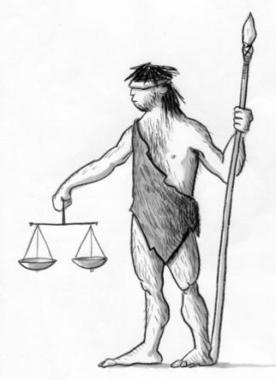


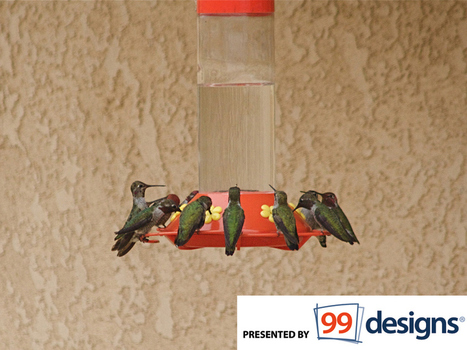
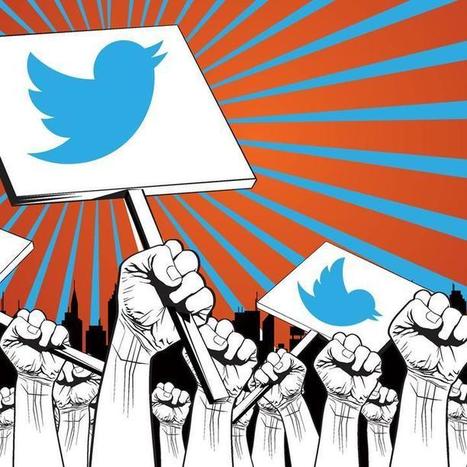


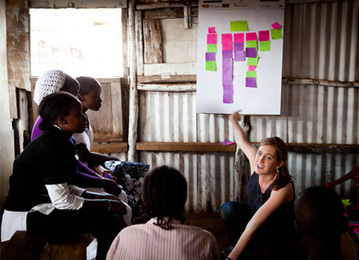

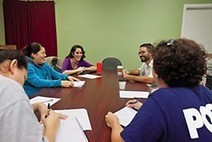

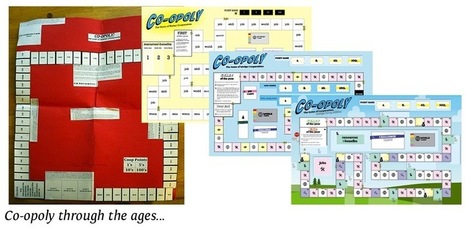



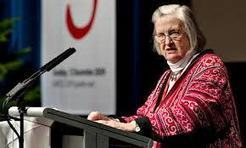
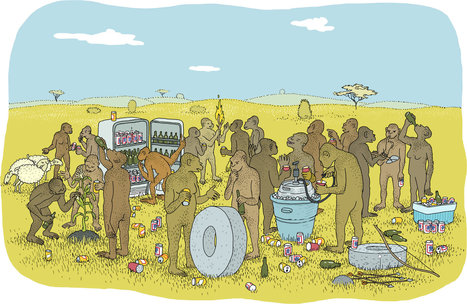
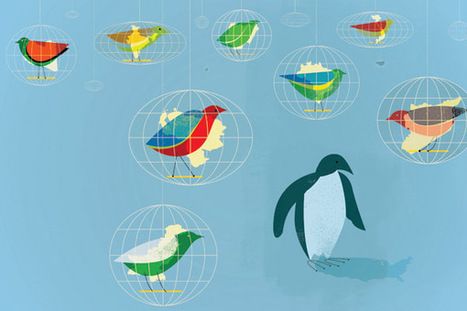

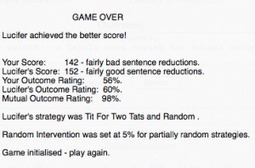

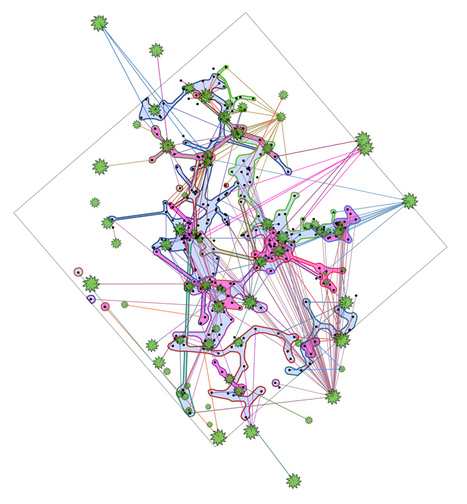
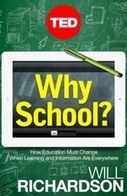
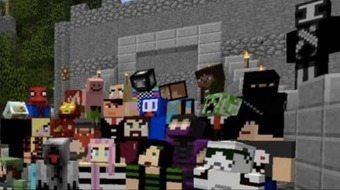





Highlights:
Theoretical work has revealed five mechanisms for the evolution of cooperation.These are direct and indirect reciprocity, and spatial, multilevel, and kin selection.We present experimental evidence for each mechanism operating in human behavior.We show that reciprocation is an automatic response, which implies that reciprocity has a key role.From an assumed, unproven instinct for competition, we have gone to a demonstrable instinct for cooperation.